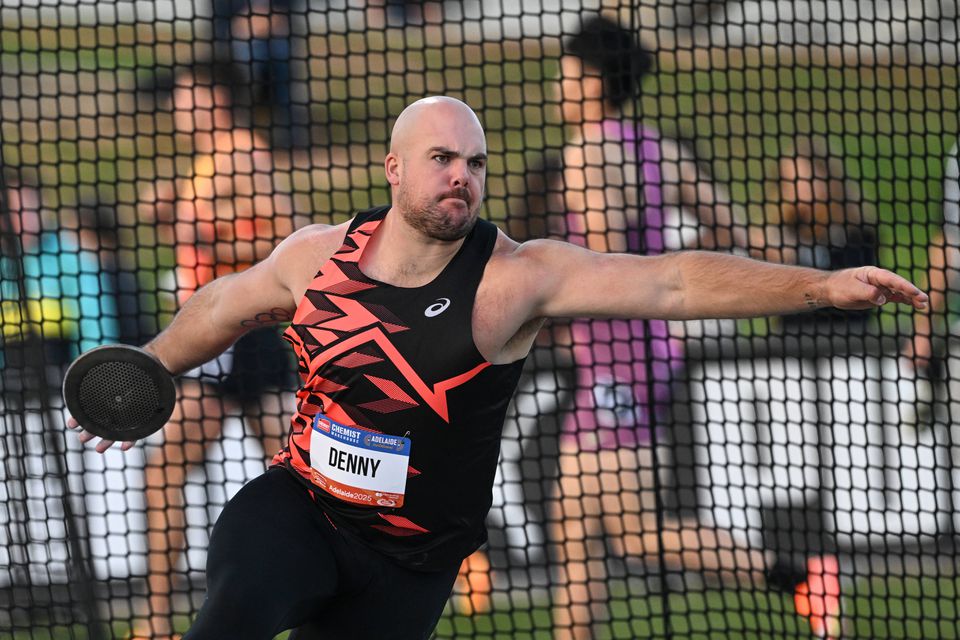Australian discus thrower Matthew Denny stunned with a 74.78m throw in Oklahoma, breaking his national record and surpassing Alekna’s. Critics’ bizarre accusation of so-called “weather doping” has overshadowed Denny’s historic feat and Alekna’s world-record throw.
Held at Millican Field in Ramona, Oklahoma, “Throw Town” is famed for elite discus and javelin competitions despite its size. The venue has multiple throwing circles placed strategically to harness wind direction, helping organizers choose the best setup for athletes. Unlike sprinting or long jump, discus allows unlimited wind assistance, enabling athletes to legally use strong gusts for longer throws.
This rare condition sparked exceptional performances, as five athletes impressively exceeded the 70-meter mark, an uncommon feat in discus events. Instead of praising the remarkable strength and skill shown, some Scandinavian coaches and commentators dismissed the results as artificially inflated.
Swedish commentator Mats Wennerholm sparked controversy with his reaction to Alekna’s world record.
“Mykolas Alekna smashes his own world record with a 75.56 throw in a wind-battered Ramona, and I don’t know whether to laugh or cry. It just becomes ridiculous in a competition boosted by gale-force winds. Weather doping should be added to the banned list,” she said as qouted by Daily Mail.
Norway’s former Olympic 800m champion Vebjørn Rodal echoed the sentiment.
“There’s no doubt this arena is sought out for throwing far.” Even Staffan Jonsson, coach of Swedish discus star Daniel Stahl (the reigning Olympic and world champion), weighed in, calling the conditions a game-changer: “It’s a different sport.”
Despite the backlash, there is no rule against using wind assistance in discus, meaning all records set in Ramona remain fully legal. Athletes and organizers argue that technique, strength, and timing still play crucial roles in maximizing distance, regardless of wind conditions.
Denny, who ultimately finished second behind Alekna, has not publicly addressed the “weather doping” claims. His performance and other elite results show that even with favorable winds, only the world’s best exceed 70 meters consistently.
The controversy has revived debate on whether World Athletics should apply wind restrictions to throws, like in sprints and jumps. Currently, the absence of such rules means venues like Millican Field remain attractive for athletes chasing personal bests and records.


